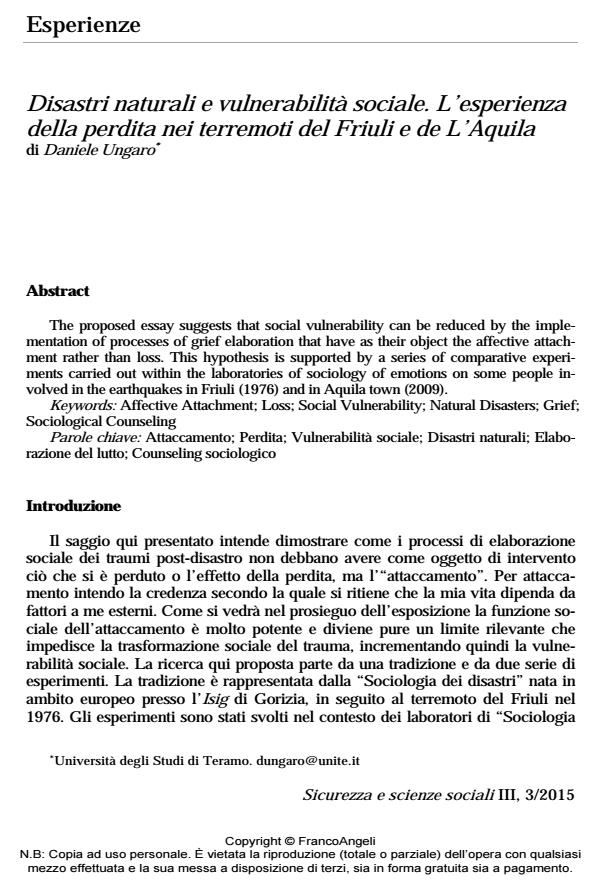Disastri naturali e vulnerabilità sociale. L’esperienza della perdita nei terremoti del Friuli e de L’Aquila
Journal title SICUREZZA E SCIENZE SOCIALI
Author/s Daniele Ungaro
Publishing Year 2016 Issue 2015/3
Language Italian Pages 10 P. 75-84 File size 66 KB
DOI 10.3280/SISS2015-003007
DOI is like a bar code for intellectual property: to have more infomation
click here
Below, you can see the article first page
If you want to buy this article in PDF format, you can do it, following the instructions to buy download credits

FrancoAngeli is member of Publishers International Linking Association, Inc (PILA), a not-for-profit association which run the CrossRef service enabling links to and from online scholarly content.
The proposed essay suggests that social vulnerability can be reduced by the implementation of processes of grief elaboration that have as their object the affective attachment rather than loss. This hypothesis is supported by a series of comparative experiments carried out within the laboratories of sociology of emotions on some people involved in the earthquakes in Friuli (1976) and in Aquila town (2009).
Keywords: Affective Attachment; Loss; Social Vulnerability; Natural Disasters; Grief; Sociological Counseling
Daniele Ungaro, Disastri naturali e vulnerabilità sociale. L’esperienza della perdita nei terremoti del Friuli e de L’Aquila in "SICUREZZA E SCIENZE SOCIALI" 3/2015, pp 75-84, DOI: 10.3280/SISS2015-003007